WHAT THE BY-ELECTION MEANS FOR 2015…
The Workers’ Party’s winning margin in Hougang has dipped, but it can still claim a record that no other, not even the People’s Action Party, is able to boast of. Since 1981, the WP has never been voted out of any seat that it held.* Today, this strong loyalty to the Hammer brand withstood internal ill-discipline, embarrassing leaks and allegations of flip-flopping, as Png Eng Huat beat the PAP’s Desmond Choo.
After months of drama precipitated by the misconduct of former MP Yaw Shin Leong, the status quo has been restored, with the WP in charge of Houngang-Aljunied and the PAP enjoying an 81:6 majority in Parliament. But the 2012 by-election was never going to be about the Hougang seat alone. Its significance was always in its implications for 2016. In that regard, both the WP and the PAP are due for a sober post-mortem.
WP’s growing pains
Putting recent controversies behind it, the WP can continue to trot forward as the top dog in the Opposition pack. It looks like it’s here for the long haul, unlike the National Solidarity Party with its conveyor belt of leaders; and, unlike the Singapore Democratic Party, it’s able to avoid stunts that alienate that section of the electorate that holds the key to the Opposition’s long-term success – PAP voters who might be persuaded to switch to the Opposition.
But the tightest ship in the Opposition flotilla has been showing some cracks. Since the WP’s historic victory in May 2011, it has been hurt by high-profile exits, including the ignominious loss of its original Hougang MP. The conduct of Poh Lee Guan, who kept the public and even his party guessing as to whether he would stand against its chosen candidate, has yet to be satisfactorily explained.
The truth is, internal cohesion will continue to be a challenge for the WP.
First, Low Thia Khiang’s management ethos is a key reason for the WP’s electoral effectiveness but it also creates internal strains. Those who can’t accept his tight party discipline will leave. This is nothing new: several star candidates in the 2006 GE defected soon after (Goh Meng Seng, James Gomez, Chia Ti Lik).
Second, the weight of public expectations on the WP means any cracks exact a higher political cost than before. To be entrusted with more seats in Parliament House, it must show that its own house is in order. Leaks and resignations in lesser parties hardly cause a ripple, but they can hurt the WP. Any ambitious, self-serving member (which every party has plenty of) knows that. This makes the WP vulnerable to political blackmail by individuals and factions within the party.
Third, the stakes will be higher in the coming years than before. Now that winning additional seats is a realistic proposition, restless wannabes will be jostling for a place in the East Coast GRC team and other key 2016 targets. Younger members will be positioning themselves for the WP’s third generation leadership, which, if Singapore does arrive at a two-party system by 2021, would be the generation that reaps the benefits of Low’s hard work. For every individual the party appoints to a coveted position, there will be others who feel cheated.
Fourth, although the WP is the party to join if you want to be part of a winning Opposition team, it has limited powers of patronage. With very few exceptions, former PAP politicians keep their mouths shut. Often, it’s because of a lifelong sense of esprit de corps. As for any disaffected members of the establishment who are tempted to betray the cause, a hankering for GLC and statutory board appointments may be enough to keep them smiling stiffly at the powers-that-be. The WP can dangle no such carrots to keep its members happy.
Fifth, Opposition solidarity has never been more than temporary marriages of convenience, and it is getting harder for the WP to avail itself of this resource. As a byproduct of its spectacular 2011 success, it is now seen as set apart from the rest of the Opposition. It’s striking that (as far as I can see from their websites) neither the SDP nor the NSP issued statements in support of the WP in the run-up to the Hougang battle. The battle was framed as PAP vs WP and not PAP vs Opposition, which may help explain the surprising amount of anti-WP sentiment online.
Many anti-PAP Singaporeans want to believe that all talk of intra-Opposition friction is a fabrication of PAP-controlled media. But the truth, as anyone who has spent time talking to Opposition politicians knows, is that there is no love lost between them. You don’t have to look far to find Opposition members who think the WP has grown too big for its boots.
PAP’s uphill road
The PAP has chipped away slightly at the WP’s winning margin in 12 months. The ruling party will try to draw encouragement from that. It has to. It is important for its activists to maintain credible pressure on Hougang and Aljunied and keep Low and his team busy in their own backyards – because if the WP has too much time on its hands, there is a good chance that East Coast GRC will be the next Aljunied, come 2016.
One comforting sight for the PAP must have been the online support it received. In the 2011 GE, the ruling party was shellshocked by the barrage of one-sided criticism on the internet. In the immediate aftermath, the conventional wisdom was that netizens would continue to play the role of a 12th man for the Opposition, helping to counteract PAP dominance offline.
But a funny thing happened on the way to the by-election. No longer was cyberspace so uniformly hostile to the PAP. Suddenly, the WP was getting its share of criticism online. A “Fabrications About The PAP” Facebook page run by a supporter of the ruling party, Jason Chua, has been injecting a steady stream of pro-PAP messages into social media.
TREmeritus, the successor to Temasek Review, appeared more balanced than its predecessor, which had the loudest anti-PAP voice in the 2011 GE. More interesting was the role played by Temasek Times. Its name is reminiscent of the old Temasek Review and it claims to have Temasek Review readers among its editors. With its consistent focus on public unhappiness over immigration, it was never entirely pro-PAP. Overall, however, Temasek Times was unmistakably tougher on the WP than on the ruling party – making less of an effort to be fair and balanced than the Straits Times.
Extrapolating from 2012, it appears that the 2016 online environment will be quite different from 2011. It will still pose a major worry for the ruling party, which will continue to be thrown curve balls by online critics. The big change, though, will be that Opposition parties will no longer get a free pass, which is good news for the PAP.
Style, substance and structure
Realists in the establishment know that, whatever the PAP does, Singapore’s dominant party system is eroding. In its place will be a much stronger Parliamentary Opposition that, even if it doesn’t amount to a full-blown two-party system, will more accurately reflect public opinion in a complex city-state.
The PAP needs to manage that transition in a way that keeps its own authority and integrity intact, and without unwittingly accelerating its own decline. This will require changes in style, substance and structure.
The PAP’s stylistic changes include its frenzied adoption of social media such as Facebook. More importantly, it is changing the tone of its delivery and trying to appear less high-handed. An air of pained sincerity has replaced the we-know-best glare as the preferred face of PAP politicians. Teo Chee Hean may have replaced Wong Kan Seng as the PAP’s tough-talker, but Teo’s style is nowhere near as hardline or divisive as the PAP of old. However, since public expectations have also evolved and today’s Singaporeans are more sensitive to perceived arrogance, it is not clear whether the PAP has changed enough in this regard.
The ruling party continues to struggle in its search for an effective campaign formula. When it tries to exploit Opposition missteps, it risks coming across as an undignified bully. Teo Chee Hean’s allegations that Png was being less than honest probably had mixed results. Among swing voters who are not quite sold on the Opposition, the doubts cast on Png may have been sufficient to pull them into the PAP camp. Equally, swing voters hoping for a kinder gentler PAP may have seen enough evidence in this campaign that the PAP hasn’t changed, and cast their votes for the WP.
As for substance, this is the PAP’s traditional strength – the area where its technocrats come to the fore. The government has been realistic enough to avoid claiming that the effects of its policy changes are already being felt on the ground. For this reason, it avoided treating the 2012 by-election as a confidence motion in the PAP. Ideally, the PAP would have liked to take the full 5 year term before going back to the electorate.
However, it may not be able to wait till 2016. Since the late 1970s, the PAP has used elections not only to renew its mandate but also to induct fresh blood for self-renewal. PAP rejuvenation has become worryingly slow. By the 2006 GE, it had become clear that Singapore’s fourth Prime Minister would have to emerge from that or the next cohort of 30-somethings or 40-somethings, who would step into the top job midway through 2016-2021 term.
If there is indeed somebody in the current Parliament who can take the helm, he/she and the party have certainly done a good job of hiding the fact. The PAP has always been justly proud of its record of planned leadership succession. By its own high standards, the PAP – and Singapore – risks a leadership crisis unless there is a significant injection of heavyweight talent at another by-election well before 2016.
Singapore also needs to insure itself against the possibility that the PAP will ultimately fail to deliver. This is why structural reform – not just changes in style or substance – is important. Without institutional safeguards, the PAP’s problems will automatically become Singapore’s problems. If the party goes down, there is a high chance that, in desperation, it will clutch at whatever levers are within reach, including national institutions that should represent the public interest, not party interests.
In the Hougang campaign, the WP highlighted three such problem areas. There is the Elections Department, which currently answers to the Prime Minister’s Office when it should be an independent authority. The People’s Association, a key nation-building institution that should bring Singaporeans together, can be abused in a way that divides people along party lines. And, finally, Singapore Press Holdings and MediaCorp operate under close government supervision, undermining their credibility in the coverage of controversial political issues.
Some in the PAP may fear that structural reform of Singapore’s democratic institutions will just accelerate its decline. But this would be the case only if the PAP’s electoral success so far has been hollow, and built on an unfair political foundation. If it wants to preserve its status as Singapore’s dominant national movement, there is no alternative to winning the contest of ideas fair and square. If it can do that while subjecting itself to the check and balance of transparent and neutral democratic institutions, its standing will only be elevated.
NOTE
* Since 1981, two Workers’ Party MPs have lost their seats – J.B. Jeyaretnam and Yaw Shin Leong – but both through disqualification and not at the polls.
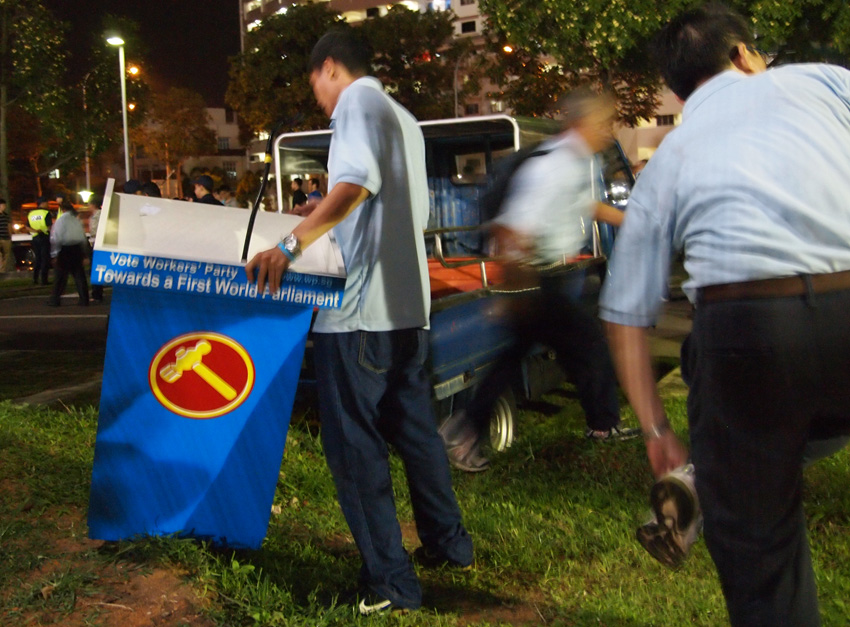

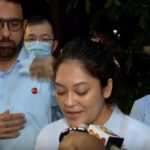
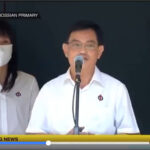

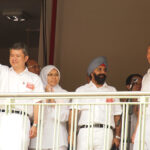
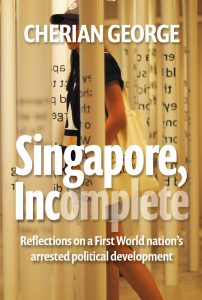
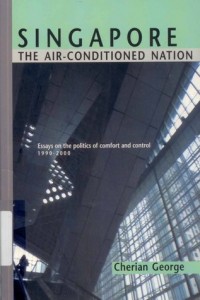
Comments are closed.